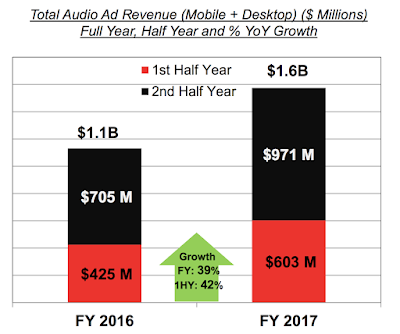 |
|
Gerry Rohde with one of his
many classic cars
|
Gerry
Rohde, the night voice of KWMU 90.7 FM in St. Louis died suddenly on Monday
(5/7) at the age of 55. Rohde had been the voice of the night shift at KWMU for
over 20 years.
Rohde’s
body was discovered in a stockroom at the biology department at Washington
University where he worked a second job since 1993. The cause of his death has
not been made public.
Rhode
had worked for KWMU since 1985, first as a weekend jazz host, then in 1996 as
the late-night voice of the station. According to coworkers, he was perfectly
suited for the lunar shift. Another long-time KWMU staffer said on the
station’s tribute to Rohde [link]:
“One side of him wanted
to be social. And the other side of him wanted to be like the hermit more.
Where he wanted to be by himself, do what he thought was right, and it didn’t
matter if it was right for other people as long as it was right for him.”
By
all accounts Rohde was an odd fellow who was totally dedicated to his work.
Friends and coworkers filled the tribute page with stories about the dozens of
vintage cars he owned, his collection of Hawaiian shirts, bell-bottom pants
ordered from England and a baseball cap with a snout in the front and a pigtail
sticking out from the back.
The
management at St. Louis Public Radio announced Rohde's death Monday afternoon
with a Twitter post. KWMU GM Tim Eby said Rohde was an excellent employee:
"He was a great guy
with a unique style, and he was an incredibly beloved character at the station.
And along with that, he was so reliable. In the nine years I've been here,
Rhode missed a total of one shift. We're all just stunned and saddened that
we've lost Gerry."
 |
| Photo of Gerry Rohde from KWMU website |
KEN SAYS: Working the night shift
is not for everyone. Turnover is high because people miss the opportunity to
socialize and get burned out by the unusual physical routine. Some people do
adapt, however and feel the solitude helps them deal (or not deal) with life
itself.
Here
is a tip: Reach out to people who work the graveyard shift (no pun intended). Show
that you and organization appreciate folks who work while others party, play or
sleep. Buy an occasional pizza, drop a nice note or just check in. Please let
folks on the night shift know you care.
Help Spark News keep going by donating to our
new GoFundMe campaign. We accept no
advertising and provide this blog as a public service. We need reader support
to continue our work. Please click on this link to contribute. Thank you!
PODCASTING DRIVES DIGITAL
AUDIO ADVERTISING TO RECORD HIGH IN 2017
The
Internet Advertising Bureau (“IAB”) has released a year-end revenue report for
2017 that says spending on digital advertising in the U.S. was a record $88
billion. Though digital audio’s share of the pie is small ($1.6 billion), it
went up 39% in 2017.
Observers
say the quick growth in digital audio ad revenue is being driven by podcasts on
mobile devices.
According to IAB [link], 75% of the digital audio dollars are
from mobile.
Ads are now the top source of revenue for podcasters.
According
to the report: “[Advertisers] are embracing digital audio at a fast clip, recognizing
the power of this burgeoning medium. Brands are in lockstep with a growing
commitment to digital ad buys.
The
IAB report also compared digital media ad revenue with traditional media.
As you can see in chart on the left, digital
media is now the nation’s top destination of advertising dollars. In 2017 it
grew by 21% and now surpasses television.
Traditional
radio advertising in 2017 was $17.6 billion, up 1% over 2016.
A MOMENT OF
ZEN FROM iHEARTMEDIA...
Despite
the fact that iHeartMedia is now in Chapter 11 bankruptcy, the company’s Board
has approved bonuses for its top executives.
CEO Bob Pittman is on track to
receive $2,350,000 in bonuses in 2018. COO/CFO Richard Bressler can walk away
with $1.325,000.
Not bad for folks who racked up billions of dollars of debt and lowered the appeal of radio for millions of people.





No comments:
Post a Comment